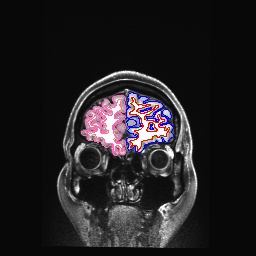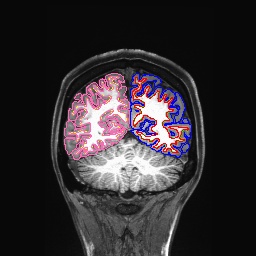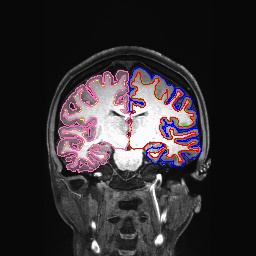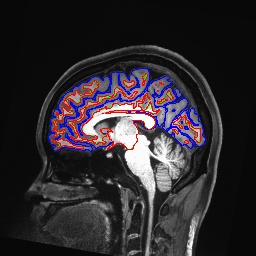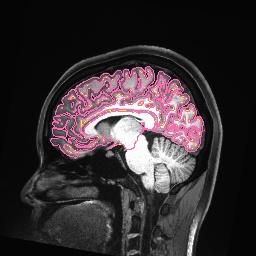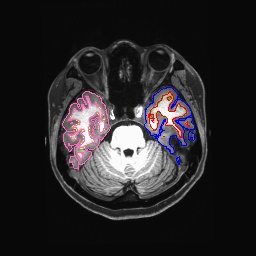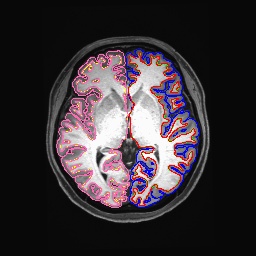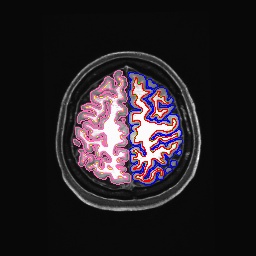Past Research
PENS 2
Perceptual Mechanisms of Visual Hallucinations and Illusions in Psychosis (PENS2) is an extension of the PHCP project that utilizes magnetoencephalography (MEG). MEG is a non-invasive procedure that detects, records, and analyzes the magnetic fields produced by electrical currents in your brain. The distribution of the magnetic fields helps identify the source of activity in the brain, which may help us understand the brain mechanisms underlying thinking and visual perception, and how they relate to genetic causes of mental disorders. This study may help us to better understand why some individuals develop these types of problems, and why others do not. We do this by studying three groups of people: people with severe and persistent mental illness (Schizophrenia, Schizoaffective disorder, and Bipolar Disorder with psychosis), their family members, and people who don’t have a personal or family history of severe and persistent mental illness. For more information regarding participation requirements, please click here.
PENS2 is funded by a grant from the NIMH as part of the RDoC program.
VA Funded Family Studies of Severe Mental Disorders:
The severe mental disorders we closely study are schizophrenia and bipolar disorder. The primary objectives of studying these brain disorders are to determine how genetic liability for the conditions affect the brain, and how the expression of genetic liability is changed when the disorder develops. This is accomplished by studying families affected by schizophrenia and bipolar disorder and collecting neural, symptomatic, and genetic data from family members and healthy control participants. With this information, we look to contrast potential markers of genetic liability (cognitive, electrophysiological, fMRI) across individuals with varying levels of genetic liability for severe mental disorders (individuals with a disorder, their first-degree biological relatives, and healthy controls).
The family studies have been supported by 5 consecutive grants from the Department of Veterans Affairs Clinical Science Research and Development Service.
Visual Perception In Psychotic Psychopathology (VIP)
The Visual Perception in Psychotic Psychopathology (VIP) project examined thinking functions and visual perception in individuals with psychosis and their relatives. By measuring brain activity while participants performed a number of tasks, this study enhanced our understanding of the brain mechanisms that explain thinking and visual perception functions and how they relate to genetic causes of mental disorders. This study improved our understanding of why some individuals develop these types of problems, and why others do not. The study included three groups of people: people with severe and persistent mental illness (Schizophrenia, Schizoaffective disorder, and Bipolar Disorder with psychosis), their family members, and people who don’t have a personal or family history of severe and persistent mental illness.
VIP was funded by a grant from the NIMH as part of the Human Connectome Program - Psychosis Human Connectome Project (PHCP).
SATURN:
The Study of the Aftereffects of Trauma: Understanding Response in National Guard (SATURN) project examined thinking, memory, and adjustment of all military personnel who have served in Operation Iraqi Freedom (OIF) or Operation Enduring Freedom (OEF). Our goal was to understand how individuals who have various experiences in Iraq or Afghanistan respond differently using neuropsychological testing, personality measures, and various indices of brain functioning (e.g., EEG, MR imaging).
Brain injury from explosive blast is a prominent feature of contemporary combat. In addition to the physiological consequences of blast-related injuries, veterans may also return from combat with prolonged presentations of psychological distress and difficulties with civilian reintegration related to past traumatic warfare experiences. The clinical presentations of blast-related brain injury and post-traumatic stress reactions are markedly similar and thus a clearer depiction of each is needed. Therefore, Therefore, the ultimate goal of the study was to inform clinical interventions with veterans by comprehensively characterizing the unique effects of physical brain injuries and posttraumatic stress symptomatology.
SATURN was supported by funding provided by the Congressionally-Directed Medical Research Program (CDMRP) as part of the Department of Defense
DEFEND:
DEFEND was a follow-up to the SATURN protocol designed to validate and extend earlier findings about psychological trauma and head injury. Neuropsychological testing, personality measures, and indices of brain function (EEG, MR imaging) were used within DEFEND to objectively assess the effects of physical brain injury and posttraumatic stress symptomatology among veterans from OEF/OIF. Research efforts from this protocol have focused on uncovering mechanisms of recovery important for successful reintegration into civilian life. Ongoing analyses seek to improve characterizations of physical brain injury and deployment-related psychological disorders, explore the utility of novel markers of these conditions, and generate potential biological targets for treatment. By increasing understanding of the processes involved for returning veterans to maximum levels of functioning, this work aims to increase the effectiveness of clinical assessments and interventions.
DEFEND was funded by the Department of Veterans Affairs, Rehabilitation Research and Development (RR&D) Service.
CSP572:
The goal of the Cooperative Studies Project (CSP) 572 was to establish a national, representative cohort of Veterans affected by schizophrenia and bipolar affective disorder in order to determine the genetic and cognitive factors contributing to impaired community and social functioning in the disorders. The CABLab was one site in this multi-site national study.
CSP572 was supported by funds provided by the Department of Veterans Affairs Cooperative Studies Program.
MVP:
The Million Veteran Program (MVP) was intended to establish a national, representative longitudinal cohort of Veterans for future genetic and other observational research, to include the collection of new data from survey instruments, blood specimen collection, electronic health information from multiple VA and non-VA resources and ancillary data collection efforts (e.g. physical examinations for a subset of participants). The ultimate goal of MVP was to improve Veterans’ healthcare. Consented participants will provide a blood sample that will be stored at a VA Central Biorepository. Information collected about Veterans’ health, disease characteristics, and lifestyle will be stored in the VA Central Research Database. The recruitment goal was to enroll as many as 1 million Veterans across multiple sites nationwide. CAB Lab was one site in this multi-site national study.
MVP was supported by funds provided by the Department of Veterans Affairs Genomic Medicine Program (GMP).

